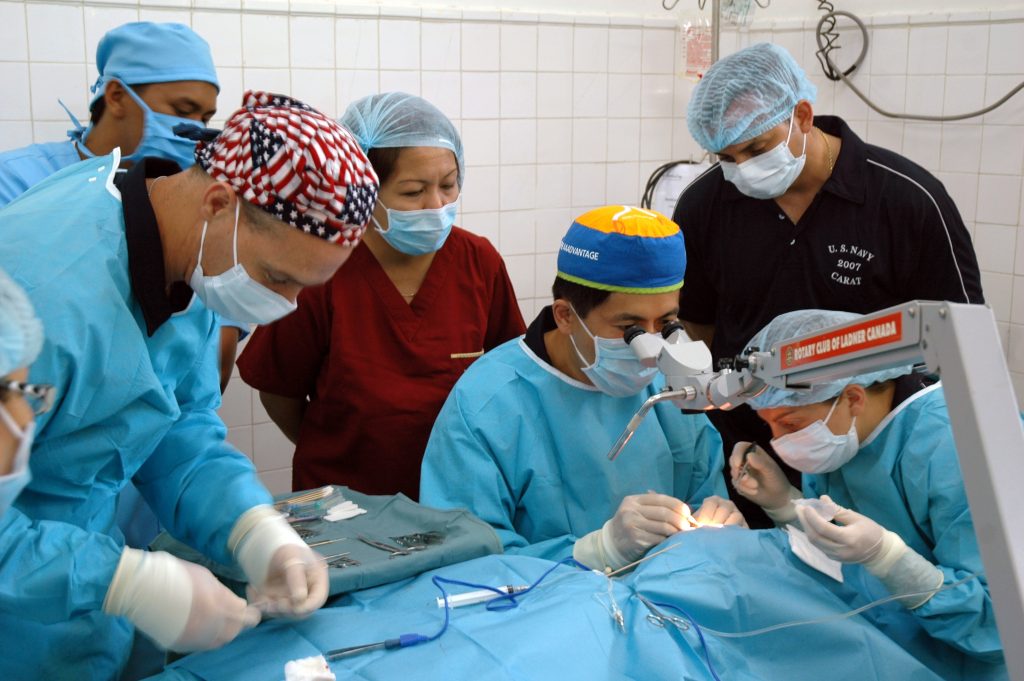 Undergoing a surgery is always a nerve-wracking experience. You want to be able to trust that your surgeon conducted and reviewed the appropriate pre-operative tests. Can a surgeon be held liable if he or she fails to review the results of the pre-operative tests before performing the surgery?
Undergoing a surgery is always a nerve-wracking experience. You want to be able to trust that your surgeon conducted and reviewed the appropriate pre-operative tests. Can a surgeon be held liable if he or she fails to review the results of the pre-operative tests before performing the surgery?
Roger Burchfield was admitted to Willis-Knighton Medical Center to receive non-emergency surgery on his gallbladder. Before the surgery, Burchfield’s surgeon, Forrest Wright, ordered a chest x-ray and EKG. However, Wright did not review the results prior to performing the surgery. If Wright had reviewed the tests, he would have seen Burchfield had congestive heart failure and multiple other possible heart issues. Burchfield himself did not know he had these heart issues.
The surgery was successful, and Burchfield went home. However, about a day later, Burchfield started experiencing swelling. He went to the emergency room and was admitted into the hospital. The hospital found Burchfield had suffered a heart infection, respiratory failure, heart failure, and other issues. He was put in a medically induced coma before undergoing a heart transplant. Although Burchfield recovered from the transplant, he was no longer able to work as a mechanic and requires medical care for the transplant for the rest of his life.
Burchfield and his wife filed a lawsuit against Wright and the hospital, claiming Wright committed medical malpractice by not reviewing the pre-operative tests. A Medical Review Panel agreed Wright had breached the applicable standard of care by not reviewing the tests. Burchfield settled with Wright. The Louisiana Patients’ Compensation Fund (“PCF”) intervened in the lawsuit. At trial, the jury found Burchfield had proven the defendant’s breach of the applicable standard of care made it so Burchfield loss the less than even chance to have a better outcome. However, the jury also found Burchfield had not proven the defendant’s failure to review the pre-operative test results caused Burchfield to need a heart transplant. The jury awarded Burchfield general damages, which the trial court’s judgment limited to the total amount recoverable under the Louisiana Medical Malpractice Act. See La. R.S. 40:1231.2.
The appellate court found the jury verdict had been inconsistent. It found Burchfield had proven he had lost the chance of a better outcome. It also found the jury had not been adequately instructed about how to quantify the applicable damages. As a result, the appellate court awarded Burchfield special damages, including for past and future medical expenses and lost wages, in addition to the general damages the jury had awarded.
The Louisiana Supreme Court then reviewed the appellate court’s decision. It disagreed with the appellate court’s finding the jury had not been properly instructed about the applicable damages. The jury awarded damages consistent with Smith v. State Dept. of Health and Hospitals, which held the value of the lost chance was the only applicable item of damages. Therefore, the Louisiana Supreme Court reversed the appellate court’s award of general and special damages and reinstated the general damages the jury had initially awarded.
If you think your doctor has not appropriately reviewed your test results, a good attorney can help ensure you present the jury with adequate instructions so you can be awarded all the damages to which you are entitled.
Additional Sources: Roger and Carol Burchfield v. Forrest H. Wright, M.D., et al.
Article Written By Berniard Law Firm
Additional Berniard Law Firm Article on Medical Malpractice Lawsuits: Court of Appeal Affirms Damages Award in Lost Chance of Survival Case Out of Ouachita Parish
 Louisiana Personal Injury Lawyer Blog
Louisiana Personal Injury Lawyer Blog

